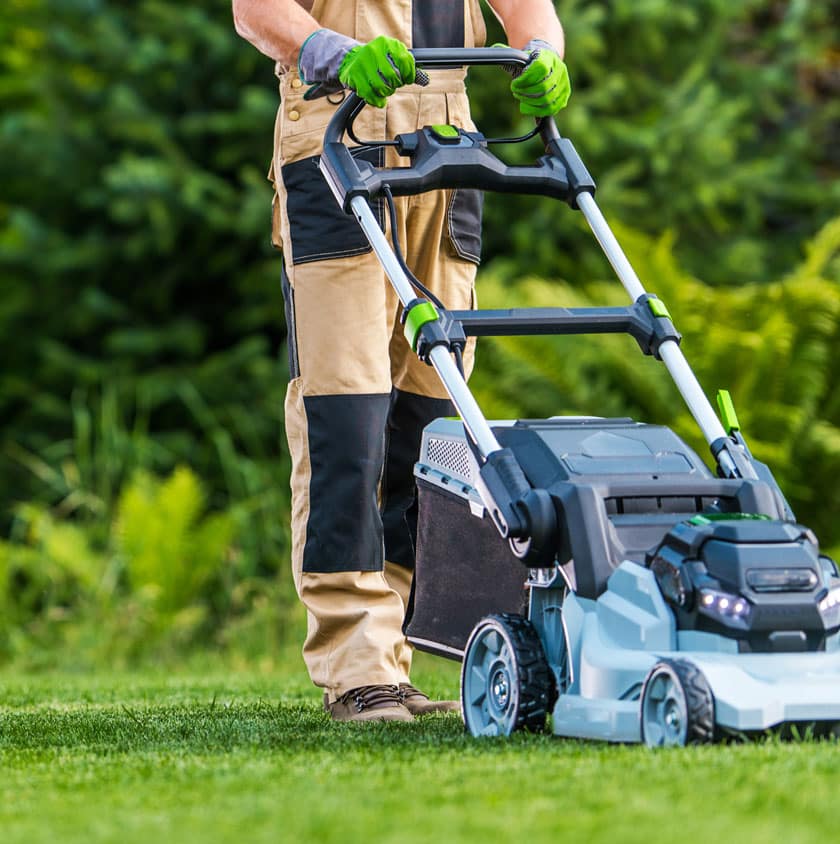
Gardeners Insurance
Compare Gardener Insurance Quotes
- Complete one short form
- Quickly compare quotes
- Find a great deal today!

Compare insurance quotes from UK’s leading gardener insurers including:
Why Compare Gardener Insurance Quotes At SimplyQuote.co.uk?
Comparing gardener insurance helps you find the right level of protection for the type of gardening work you do — without overpaying or missing essential cover.
At SimplyQuote, we’ve partnered with Quotezone to give you quick access to tailored quotes from trusted UK tradesman insurers. You enter your details once, and we match you with policies built specifically for trades like yours.
Whether you’re mowing lawns, landscaping gardens, maintaining commercial grounds or clearing tree lines, the risks change — and so should your cover. With our system, you can compare policy features, add or remove extras like tool or personal accident cover, and choose a price point that works for your business.
There’s no spam, no pushy salesmen — just a fast, simple way to protect the work you rely on.
What Do I Need to Get a Quote?
To get a gardener insurance quote, you’ll need to provide a few quick details about your work, tools, and business setup.
It usually takes less than five minutes. You’ll be asked to confirm:
- The type of gardening work you do – e.g. lawn maintenance, landscaping, tree work, hedge trimming, or commercial groundskeeping
- Your business setup – Are you a sole trader or do you employ others?
- Your postcode and turnover – These help calculate risk and premium levels
- Who works with you – Subcontractors, casual labour, or full-time staff?
- What level of public liability you want – Most gardeners choose £1M, £2M or £5M
- Whether you need extras – Tool cover, personal accident, legal expenses, or employer’s liability
- Any recent claims – If you’ve made insurance claims before, insurers will need to know
- Tool storage setup – Especially important if you want tool cover
The form is built for speed, and designed with trades like gardening in mind. Just be accurate and honest — the more tailored your answers, the more accurate your quote.
Why Do I Need Gardener Insurance Cover?
Gardener insurance protects you if your work causes injury, damage, or loss — and helps you get back on your feet if your tools are stolen or you’re injured on the job.
You might be mowing lawns, planting borders, trimming hedges or clearing debris. But all it takes is a loose paving slab, a stray stone flicked by a mower, or an unattended rake for a claim to be made against you.
Public liability insurance can cover legal costs and compensation if someone is injured or their property is damaged due to your work. And if your equipment is stolen from your van, or you’re unable to work because of an accident, extras like tool cover and personal accident insurance can help keep you going.
Many local councils, estate agents, and commercial clients also ask to see proof of insurance before you’re allowed on-site — so having cover isn’t just about peace of mind. It could also help you win more work.

What Insurance Do Self-Employed Gardeners Need?
If you’re a self-employed gardener, you’ll likely need public liability insurance as a minimum — and many also choose tool cover and personal accident insurance.
Even if you work alone, you’re still responsible for damage, injury, or disruption caused by your work.
Here’s what most self-employed gardeners include in their policy:
- Public liability – If a client trips over your hedge trimmer or a mower damages property, this covers legal fees and compensation
- Tool cover – If your equipment is stolen from a van or garage, this helps you replace it without delay
- Personal accident cover – Pays out if you injure yourself and can’t work — especially useful if you rely on your hands and tools
- Employer’s liability – You don’t need this unless you bring in help or subcontract someone (even casually)
You don’t need to run a company or have staff to justify insurance. As a sole trader, you carry all the risk — and the right policy protects your tools, your income, and your reputation.
Does Gardener Insurance Cover Subcontractors Or Seasonal Workers?
Subcontractors and seasonal workers aren’t automatically covered by your gardener insurance — you’ll need to declare them when setting up or updating your policy.
If you don’t, a future claim involving them could be denied.
Here’s what insurers usually look for:
Subcontractors
Insurers divide subcontractors into two groups:
- Labour-only subcontractors – They use your tools, follow your instructions, and work under your supervision. You’ll need employer’s liability insurance to cover them.
- Bona fide subcontractors – They work independently, bring their own tools, and carry their own insurance. You won’t need to cover them — but insurers may ask you to check their documents.
Seasonal workers or casual help
Even if they only work with you for a few weeks or on a part-time basis, you still need employer’s liability if they’re working under your direction.
Many gardeners hire help in spring and summer when demand spikes. Just make sure you notify your insurer if your setup changes — or your policy might not protect you when it counts.
What Does Gardener Insurance Cover Include?
Gardener insurance typically includes public liability, tool cover, personal accident protection, and employer’s liability if you hire help.
Your policy can be customised based on the type of work you do and the risks you face.
Here’s what’s usually included:
- Public liability insurance – Covers injury or damage caused by your work. If a member of the public trips over your strimmer cable or their property is damaged by a mower, this helps cover legal costs and compensation.
- Tool cover – Protects your gardening equipment if it’s stolen, lost, or damaged — especially important if you carry tools in your van or work across multiple sites.
- Employer’s liability insurance – A legal requirement if you employ staff or bring in labour-only subcontractors. It covers claims if someone working for you is injured or becomes ill due to the job.
- Personal accident insurance – Pays out if you’re injured and can’t work. This is especially useful if you’re self-employed and rely on day-to-day income from physical work.
- Legal expenses cover – Often optional, but useful for contract disputes, tax investigations, or defending claims not covered by standard liability insurance.
Most gardeners choose a policy based on how and where they work — whether you’re maintaining private gardens or handling commercial groundskeeping, it’s worth tailoring your cover to match.

What’s Not Included?
Gardener insurance doesn’t cover everything — and knowing what’s excluded helps you avoid costly surprises when it matters most.
While every insurer is different, there are some common exclusions to be aware of. Here’s what’s usually not included:
- Wear and tear – You won’t be covered for general tool breakdowns or age-related damage. If your lawnmower packs in after years of use, that’s on you.
- Unsecured tools – If your tools are stolen from an unlocked van, garage, or open site, most insurers won’t pay out — even with tool cover.
- Subcontractors not declared – If you bring in help but don’t declare them, a claim involving them may be rejected — especially if you should have had employer’s liability.
- Working outside your declared trade – If you tell your insurer you do basic gardening, but then take on tree surgery or commercial landscaping, you may not be covered unless your policy reflects the change.
- Faulty workmanship – Most public liability policies won’t pay to redo work if it’s simply done badly. You’d need professional indemnity (and even then, not always).
- Illegal or unlicensed work – If you’re operating without the correct licenses (e.g. pesticide handling) or breaking regulations, you’re unlikely to be covered.
The best way to stay protected is to read your policy wording — or speak to your insurer before you take on unfamiliar or high-risk work.
How Much Does Gardener Insurance Cost?
Basic gardener insurance can start from around £70 to £150 per year, but your actual premium depends on what type of gardening you do, your tools, and your level of cover.
If you’re self-employed and doing low-risk domestic work, you might only pay £6–£12 a month for public liability. But if you’re carrying expensive machinery, working in public spaces, or employing staff, costs will be higher.
Here’s what usually affects your price:
- Work type and risk – Tree surgery or commercial grounds maintenance tends to cost more than standard domestic work
- Public liability level – Most gardeners choose £1M, £2M or £5M — higher cover = higher premium
- Tool value – The more gear you insure, the more you’ll pay — especially if stored in a van overnight
- Employer’s liability – Legally required if you have help, and it adds to your cost
- Claims history – A clean record helps keep your price down
- Postcode and operating area – High-theft zones or areas with heavy foot traffic may increase your risk profile
The key is balance — you want enough cover to protect you, but not so much that you’re overpaying for things you don’t need.
How Can I Save Money On Gardener Insurance?
You can save money on gardener insurance by tailoring your cover to your actual work, comparing quotes regularly, and storing your tools securely.
It’s about being efficient — not cutting corners. Here are practical ways gardeners keep their costs down:
Pick the right public liability limit
£1M is usually enough for domestic work. You might only need £5M if you’re working in public parks or for councils.
Avoid over-insuring tools
Don’t guess. Insure only what you actually use and know the value of your kit.
Improve your tool storage
If your tools are in a van, install extra locks or an alarm. Some insurers reward this with lower premiums.
Compare quotes every year
Auto-renewing without checking prices can leave you overpaying. Comparing takes minutes and often saves you money.
Increase your voluntary excess
If you’re willing to cover a bit more in a claim, some insurers will reduce your upfront cost.
Keep a clean claims record
Where safe to do so, covering small mishaps yourself can keep your future premiums low.
Cutting your insurance cost isn’t about stripping back to the bare minimum — it’s about making sure you’re paying for protection you actually need.
How To Compare Gardener Insurance Quotes Online
Comparing gardener insurance at simplyquote.co.uk is fast, easy, and designed with tradespeople in mind.
You only need to enter your details once to see tailored quotes from trusted UK insurers.
Here’s how it works:
- Tell us what you do
Select “Gardener” as your trade, then provide a few basic details like your postcode, business type, and turnover. - Pick your cover
Choose your level of public liability, then add extras like tool cover, personal accident protection, or employer’s liability if needed. - See your quotes instantly
You’ll get a range of quotes from UK insurers who understand trades — all in one place, no chasing or cold calls. - Compare what matters
Look at more than price — check what’s actually covered, the policy limits, and any exclusions that might affect you. - Apply online in minutes
When you’re ready, go directly to the insurer to buy your policy. No middlemen. No confusion. Just straightforward protection.
It’s all powered by our trusted partner Quotezone — helping you spend less time on admin and more time focusing on your business.
Frequently Asked Questions
No, not unless you employ staff — in which case employer’s liability insurance becomes a legal requirement. Public liability isn’t legally required but is strongly recommended.
Yes. Many insurers offer cover for part-time or seasonal gardeners. You’ll just need to estimate your annual turnover and describe your typical work.
Yes — but you may need higher public liability (e.g. £5M) and proof of cover. Always check contract requirements before starting the job.
Not automatically. If you apply chemicals as part of your work, you may need to hold the correct licence and declare this in your policy.
Yes. Tool cover can usually be extended to include heavy or powered gardening equipment — but you must declare it and know its value.
Instantly. Once you complete the quote and buy a policy, cover usually starts immediately and your documents are emailed to you within minutes.
Possibly. If landscaping is a core part of your business, declare it when applying. Some insurers treat it as a higher-risk activity and adjust accordingly.
Yes. You can usually update your policy mid-term — whether you’re adding staff, buying more tools, or expanding your service area.
Written by Chris Richards
Page last reviewed on 27th March 2025 by Chris Richards
